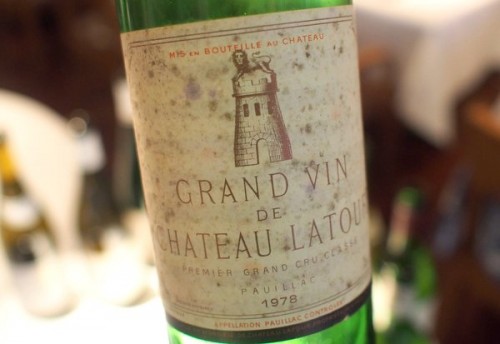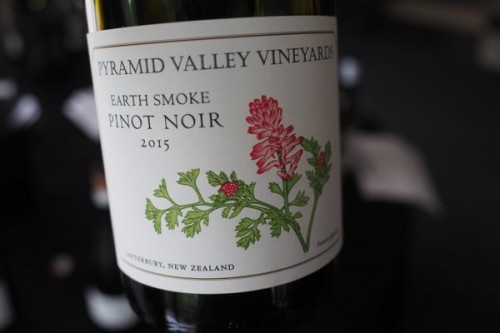
What is greatness in a wine? This was the subject of a session at the Pinot Noir symposium, where we were encouraged to discuss this question among ourselves. These are some of my thoughts.
We’re entering the realm of aesthetics here. Greatness is not simply one person’s preference. Nor is greatness the notion that a simple wine drunk in a special location with special people ‘great’. This is a great experience, but it doesn’t confer greatness on a wine.
Greatness is conferred on wine by a community of judgement. When we, as the wine community, taste wines together, we recognize the great wines. It’s an aesthetic system, where we form a judgement together, by tasting together, discussing, listing, buying, consuming.
There’s no definition that we can apply to determine whether a wine is great or not. Nor is a score by a single critic, however influential, enough to make a wine great. If, however, a wine is consistently recognized to be exceptional – by critics, merchants and consumers – then it can emerge as a great wine.
For example, if you were to ask a group of wine professionals which were the truly great New Zealand Pinot Noirs, then I imagine there would be a degree of agreement among them. Whether or not these are great wines in the global setting is a question that would require the agreement of a broader community who have tasted widely Pinot Noirs from around the wine world.
Of course, if you are a wine producer, you want to sell your wines for a profitable price. That’s the major concern. But greatness is different to commercial success.

Does it matter whether a wine is great or not? Yes. It’s important that we as a wine community have a notion of what constitutes a great wine. We need benchmarks. These benchmark wines give us something to aspire to. These are guideposts, directing us to the destination. You can be the most skilful winegrower around, but if you are heading in the wrong direction, you’ll just get there faster and end up in the wrong place sooner.
Then we come to the notion of different aesthetic systems. We don’t all agree. Back in the 1980s Robert Parker began the era of the American critic, rating wines on a 100 point scale. This was quite a shift in the world of wine. Previously, the world of fine wine was strictly defined: the influential UK wine trade decided that serious wines came from Bordeaux and Burgundy. Some great wines also came from Champagne, Port and the top German vineyards.
Parker’s approach was a hedonic one. His scoring system created a separate aesthetic system where the standard for greatness was the deliciousness of the wine, to Parker’s palate. The Wine Spectator critics followed suit. With these scoring systems, the world of fine wine was opened up. Any wine could be great, if it was delicious enough. As a result, a new aesthetic system emerged.
More recently, and perhaps more dramatically, the latest aesthetic system has been the emergence of natural wine. Natural wines are judged very differently to the established norms for fine wine. The standard of greatness in natural wine doesn’t overlap so much with the established aesthetic systems, and it is fascinating to see some of the discourse that has emerged from this clash of systems.
So, that’s my view. Greatness is conferred on wines by a community of judgement among those connected in some way with wine. We operate within an aesthetic system that orientates us and provides us with benchmarks, helping us on our way.
4 Comments on What is greatness in a wine?


hi Jamie:
I don’t think we’re seriously disagreeing here, but I just wanted to comment on your claim that: “Greatness is conferred on wine by a community of judgement.”
I think it’s pretty implausible that the greatness is literally conferred on the wine by our communal judgment; and indeed I suspect you probably don’t really mean that either. isn’t it better to think of the communal judgment in merely evidential terms? communal judgment gives evidence about what is great, but greatness is in principle independent of the judgment.
one way to try to pull these apart: imagine that for some reason a large subset of judges change our wine appreciation practices radically (something in the atmosphere alters our sensory or evaluative capacities or something), and bestow judgments of greatness on wines that we don’t currently, actually, think are great, while bestowing judgments of non-greatness on wines that do currently, actually, think are great. hence, on this scenario, communal judgments about greatness shift. would it also be true in that scenario that what’s great in wine also shifted?
if so, then greatness (probably) depends on communal judgment. if not, then greatness is in principle independent of communal judgment — even if communal judgment is ordinarily our best evidential access about what is great and what is not.
Great wines need a parameter that only time can give. Latour is considered a great wine but it is not always great in certain years. Likewise, all the other first growths and Grand Crus from Burgundy. These wines have reached the stars on occasion and have set the boundaries, or rather, stretched the boundaries. Greatness is measured in terms of capability and expectation. A measure of consistent surprise from a given wine, e.g. Ridge Montebello, although lacking centuries of output are nearing that place we can agree is greatness.
Yes, yes and more yes.
What other aesthetic systems are there? Is there an article or a book discussing them in detail?